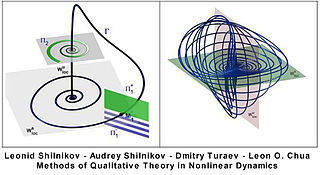 W
WClassicism, in the arts, refers generally to a high regard for a classical period, classical antiquity in the Western tradition, as setting standards for taste which the classicists seek to emulate. In its purest form, classicism is an aesthetic attitude dependent on principles based in the culture, art and literature of ancient Greece and Rome, with the emphasis on form, simplicity, proportion, clarity of structure, perfection, restrained emotion, as well as explicit appeal to the intellect. The art of classicism typically seeks to be formal and restrained: of the Discobolus Sir Kenneth Clark observed, "if we object to his restraint and compression we are simply objecting to the classicism of classic art. A violent emphasis or a sudden acceleration of rhythmic movement would have destroyed those qualities of balance and completeness through which it retained until the present century its position of authority in the restricted repertoire of visual images." Classicism, as Clark noted, implies a canon of widely accepted ideal forms, whether in the Western canon that he was examining in The Nude (1956), or the literary Chinese classics or Chinese art, where the revival of classic styles is also a recurring feature.
 W
WIn metaphysics, conceptualism is a theory that explains universality of particulars as conceptualized frameworks situated within the thinking mind. Intermediate between nominalism and realism, the conceptualist view approaches the metaphysical concept of universals from a perspective that denies their presence in particulars outside the mind's perception of them. Conceptualism is anti-realist about abstract objects, just like immanent realism is.
 W
WCrystal Cubism is a distilled form of Cubism consistent with a shift, between 1915 and 1916, towards a strong emphasis on flat surface activity and large overlapping geometric planes. The primacy of the underlying geometric structure, rooted in the abstract, controls practically all of the elements of the artwork.
 W
WInternet art is a form of new media art distributed via the Internet. This form of art circumvents the traditional dominance of the physical gallery and museum system. In many cases, the viewer is drawn into some kind of interaction with the work of art. Artists working in this manner are sometimes referred to as net artists.
 W
W W
WModernism is both a philosophical movement and an art movement that arose from broad transformations in Western society during the late 19th and early 20th centuries. The movement reflected a desire for the creation of new forms of art, philosophy, and social organization which reflected the newly emerging industrial world, including features such as urbanization, new technologies, and war. Artists attempted to depart from traditional forms of art, which they considered outdated or obsolete. The poet Ezra Pound's 1934 injunction to "Make it New" was the touchstone of the movement's approach.
 W
WThe New Romantic movement was a pop culture movement that originated in the United Kingdom in the late 1970s. The movement emerged from the nightclub scene in London and Birmingham at venues such as Billy's and The Blitz. The New Romantic movement was characterised by flamboyant, eccentric fashion inspired by fashion boutiques such as Kahn and Bell in Birmingham and PX in London. Early adherents of the movement were often referred to by the press by such names as Blitz Kids, New Dandies and Romantic Rebels.
 W
WNew Urbanism is an urban design movement which promotes environmentally friendly habits by creating walkable neighbourhoods containing a wide range of housing and job types. It arose in the United States in the early 1980s, and has gradually influenced many aspects of real estate development, urban planning, and municipal land-use strategies. New urbanism attempts to address the ills associated with urban sprawl and post-Second World War suburban development.
 W
WObjectivism is a philosophical system developed by Russian-American writer Ayn Rand. Rand first expressed Objectivism in her fiction, most notably The Fountainhead (1943) and Atlas Shrugged (1957), and later in non-fiction essays and books. Leonard Peikoff, a professional philosopher and Rand's designated intellectual heir, later gave it a more formal structure. Rand described Objectivism as "the concept of man as a heroic being, with his own happiness as the moral purpose of his life, with productive achievement as his noblest activity, and reason as his only absolute". Peikoff characterizes Objectivism as a "closed system" insofar as its "fundamental principles" were set out by Rand and are not subject to change. However, he stated that "new implications, applications and integrations can always be discovered".
 W
WPhilhellenism was an intellectual movement prominent mostly at the turn of the 19th century. It contributed to the sentiments that led Europeans such as Lord Byron and Charles Nicolas Fabvier to advocate for Greek independence from the Ottoman Empire.
 W
WIn the fields of philosophy and of aesthetics, the term philistinism describes the attitudes, habits, and characteristics of a person who deprecates art and beauty, spirituality and intellect. As a derogatory term philistine describes a person who is narrow-minded and hostile to the life of the mind, whose materialistic worldview and tastes indicate an indifference to cultural and aesthetic values.
 W
WPost-contemporary (PoCo) is a forward-looking aesthetic philosophy distinguished by a re-constructive, global, human ethos which posits that the aesthetic experience is universal to humanity, and that this experience can inspire understanding and transformation. It has developed in tandem with new theories of Emergence in Complexity science, as well as advances in Biosemiotics. In art historical terms, “modern” and “contemporary” arts are limited to their era and are defined by stylistic and philosophical parameters - chief among them, a critique of the classical European tradition and constructive philosophy, and secondly, the Contemporary ethos is characterized by an emphasis on transient or exclusively contemporary issues which reflect the zeitgeist. Following the legacy of Modernism, Post-Modernism and Contemporary art follow the tradition of Deconstruction and questioning, while Post Contemporary emphasizes generating new, constructive hypotheses. However, modeled after the Scientific Method, both modes are inter-dependent as the question|answer cannot exist without each other. Thus, Post-Contemporary views the history of the humanities as branching and pluralist, rather than a linear path of development. Consequently, PoCo has chosen a forking path, builds upon knowledge from all eras, and values quality, sublimity, and empathy above novelty. PoCo emphasizes empathy for all, regardless of race, gender, sexual orientation, or creed.
 W
WPost-Internet is a 21st century art movement involving works that are derived from the Internet or its effects on aesthetics, culture and society.
 W
WReactionary modernism is a term first coined by Jeffrey Herf in the 1980s, to describe the mixture of "great enthusiasm for modern technology with a rejection of the Enlightenment and the values and institutions of liberal democracy" which was characteristic of the German Conservative Revolutionary movement and Nazism. In turn, this ideology of reactionary modernism was closely linked to the original, positive view of the Sonderweg, which saw Germany as the great Central European power neither of the West nor of the East.
 W
WRomanticism was an artistic, literary, musical, and intellectual movement that originated in Europe towards the end of the 18th century, and in most areas was at its peak in the approximate period from 1800 to 1850. Romanticism was characterized by its emphasis on emotion and individualism as well as glorification of all the past and nature, preferring the medieval rather than the classical. It was partly a reaction to the Industrial Revolution, the aristocratic social and political norms of the Age of Enlightenment, and the scientific rationalization of nature—all components of modernity. It was embodied most strongly in the visual arts, music, and literature, but had a major impact on historiography, education, chess, social sciences, and the natural sciences. It had a significant and complex effect on politics, with romantic thinkers influencing liberalism, radicalism, conservatism, and nationalism.
 W
WSignalism represents an international neo-avant-garde literal and art movement. It gathered wider support base both in former Yugoslavia and the world in the late 1960s and the beginning of the 1970s.